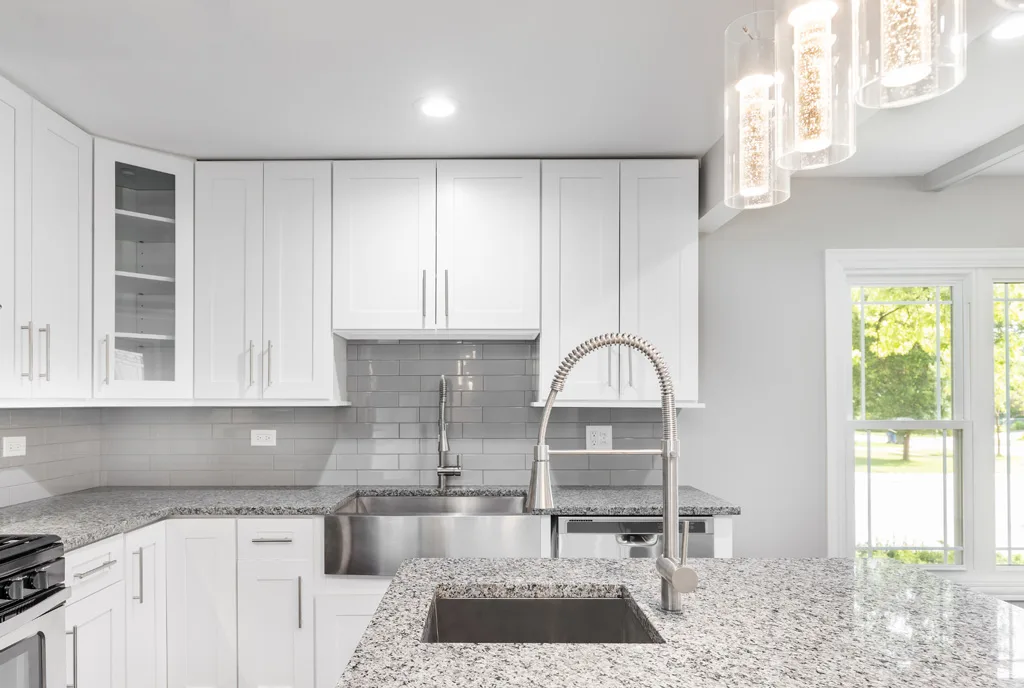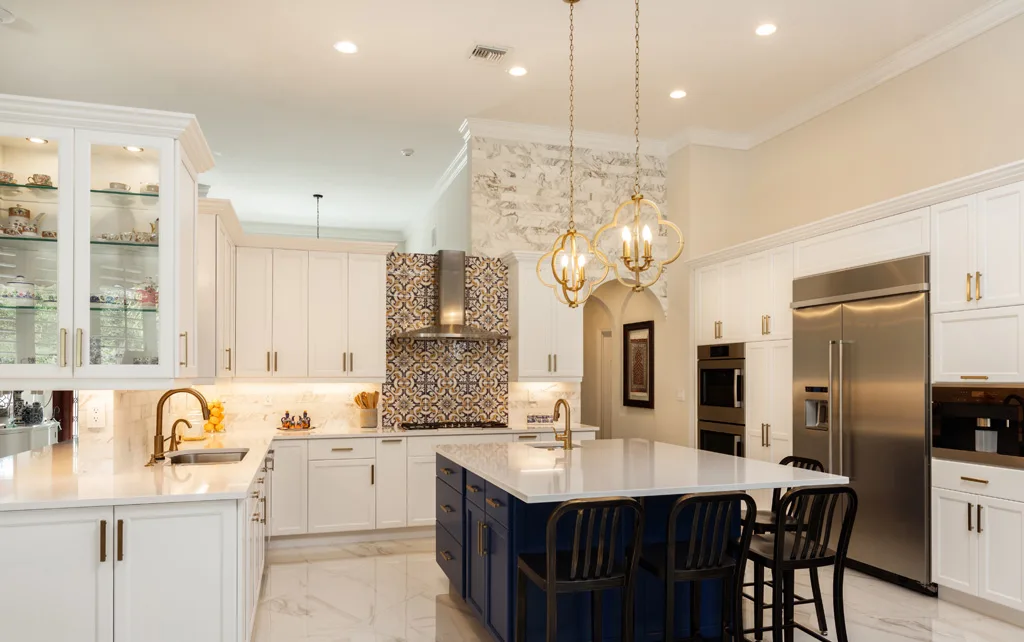Pros and Cons of Marble, Quartz, Granite, and More
When it comes to remodeling or designing a kitchen, one of the most crucial decisions you’ll make is selecting the right countertop material. Countertops not only serve as functional surfaces but also significantly contribute to the aesthetic appeal of your space. Among the plethora of options available, marble, quartz, granite, and other common materials stand out. Let’s delve into the pros and cons of each to help you make an informed decision.

Marble
Pros
- Timeless Elegance: Marble exudes timeless beauty and sophistication. Its unique veining patterns create a luxurious ambiance in any kitchen.
- Heat Resistance: Marble remains relatively cool, making it an ideal surface for baking and pastry-making.
Cons
- Prone to Stains: Marble is porous and susceptible to stains from acidic substances like lemon juice, wine, and vinegar. Regular sealing is necessary to prevent discoloration.
- Scratch and Chip Prone: It’s softer than other stones, making it more susceptible to scratches and chipping, especially in high-traffic areas.

Quartz
Pros
- Durability: Quartz countertops are engineered to be extremely durable, resistant to scratches, chips, and stains.
- Low Maintenance: Unlike natural stone, quartz doesn’t require sealing. It’s non-porous, making it resistant to bacteria and easy to clean.
Cons
- Limited Heat Resistance: While quartz is generally heat resistant, extreme temperature changes can cause thermal shock, resulting in cracks.
- Not Completely Natural: Some prefer the authenticity of natural stone over engineered materials like quartz.

Granite
Pros
- Durability: Granite is highly durable and resistant to scratches and heat. It’s suitable for heavy kitchen use.
- Variety: Each slab of granite is unique, offering a wide range of colors and patterns to choose from.
Cons
- Requires Sealing: Like marble, granite is porous and requires periodic sealing to prevent stains and bacterial growth.
- Cost: While granite offers excellent value for its durability, it tends to be more expensive than other options like laminate or tile.

Other Common Countertop Materials
- Laminate: Affordable and available in various colors and patterns, but prone to scratches and burns.
- Concrete: Customizable and durable, but prone to cracking and staining without proper sealing.
- Butcher Block: Adds warmth and character to the kitchen, but requires regular maintenance to prevent water damage and bacterial growth.
Closing
In conclusion, the choice of countertop material ultimately depends on your personal preferences, budget, and lifestyle. If you prioritize elegance and are willing to invest in maintenance, marble might be the perfect choice. For those seeking durability and low maintenance, quartz or granite could be ideal options. Consider your priorities carefully, and consult with experts to find the countertop material that best suits your needs and complements your kitchen design.

